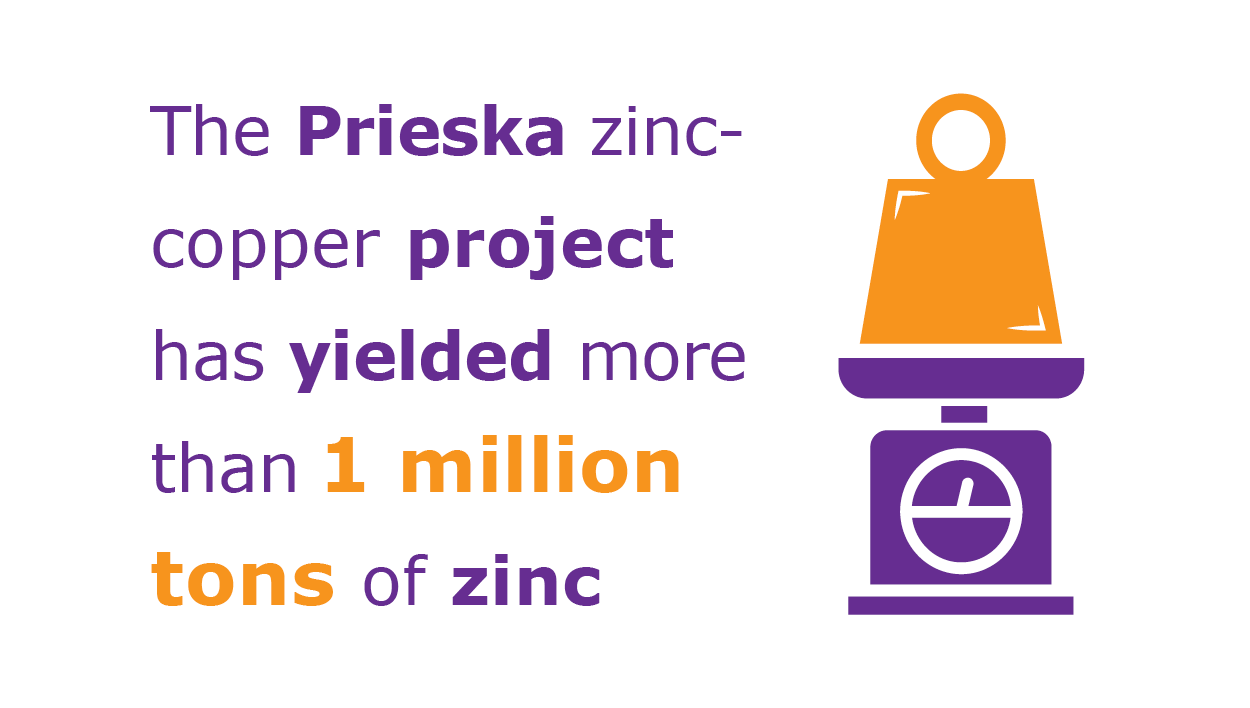Zimbabwe’s Great Dyke, a prolific mineralised region, is host to one of the world’s largest known chromite deposits. So abundant is the ore that mining can take place from surface level to uncover some of the chrome and other alluvial deposits. This resource richness is what drew mining firm African Chrome Fields (ACF) to the area.
According to Africa Mining IQ, South Africa (currently the world’s leading chromite producer) and Zimbabwe have the potential to satisfy around 90% of the world’s chromite needs. In addition, research company Nester claims that global chrome ore demand reached 41 million tons in 2021, with a CARG outlook upward of 2.5% by 2035.
ACF chairman Zunaid Moti says that since the company’s initial investment in 2014, the project’s scope has expanded to include the construction of seven chromite-processing plants and an aluminothermic chrome smelt-ing factory that utilises a ‘unique and proprietary technology’ to convert chromite ore into valuable and specialised ultra-low carbon high-grade ferrochrome.
‘Chromite concentrate is utilised in the smelting process to make ferrochrome and other alloys that require chromite as a component,’ says Moti.
‘Once removed from the upper soil layers along the Great Dyke, the alluvial deposits are washed to isolate the chrome concentrate by way of water and gravity separation. This allows for the chromite to be improved in grade and remove or reduce the content of trace minerals that are undesirable in the next processing step – which is, in general, refining or smelting.’
Moti further explains that the aluminothermic reaction utilised in ACF’s smelting operation consists of a process in which a proprietary blend of chemicals is used in a crucible with the base component of chromite concentrate in order to reduce, refine and convert chromite ore into ultra-low carbon high-grade ferrochrome.
‘This process requires practically no electricity and can be done in an incredibly short period of time, with the reaction taking roughly six minutes, and with a further 30 minutes to cool,’ he says. ‘An equivalent process would require an incredible amount of electricity and an estimated six hours to generate a similar product.’
Moti says this demonstrates an innovative, practical and efficient way in which a highly specialised process can be redeveloped to be suitable for implementation in even the most rural and underdeveloped parts of Africa and the rest of the world.

‘We have invested an enormous amount of time and over ZAR1.2 billion into researching and refining the aluminothermic process to develop an efficient and cost-effective production cycle that would produce enough heat to successfully convert raw chrome ore into a high-grade ultra-low carbon ferrochrome,’ explains Moti. He adds that it has taken some eight years, overcoming several delays caused by the pandemic and various other challenges in the region, for the plant to open early in 2023. It is now operating at 40% capacity.
‘Our proprietary, cutting-edge chemical formula, while also utilising aluminium and heat to generate the ferrochrome concentrate as with traditional thermic processes, sidesteps the introduction of impurities like carbon, phosphorous and sulphur,’ he says. According to Moti, the process involves blending atomised aluminium and chrome concentrate with accelerants that self-ignite, producing a chemical reaction that separates ferrochrome from the slag. Once cooled, the contaminate-free ferrochrome can be removed. ‘The result is a ferrochrome comprising 62% to 65% chromium and 0.02% carbon – unparalleled by global competitors.
‘This process allows us to maximise efficiency and output while simultaneously minimising our carbon footprint. We’re also able to meet the stringent quality requirements by stainless steel manufacturers, particularly those in the construction and aeronautical industries – satisfying their own need for the supply chain to be as environmentally friendly as possible.’
This also responds to beneficiation goals, which all contemporary African mining operations must address. The Zimbabwean government has increased its efforts to localise the beneficiation process to maximise its income potential, as opposed to exporting raw materials at a far lower price, bolstering local supply chains.
Integral to the area’s localised processing capabilities are ACF’s seven processing plants, the latest of which is a double plant that has increased chrome production to 700 tons of chrome per day, or around 21 000 tons per month.
‘These wash plants have brought much-needed resources to local communities, including our investment into necessary supporting infrastructure such as boreholes, roads and accommodation for staff, sourced largely from the Sebakwe region,’ says Moti.
Sebakwe is a remote and largely underdeveloped area. ‘On average, each ACF employee is the sole breadwinner of their families, demonstrating the importance of our operations for transforming incomes and livelihoods,’ he says. ‘ACF currently employs around 600 people, who in turn support thousands of people in their immediate and extended families.’
Apart from job creation, ACF is also addressing the future prosperity of the Sebakwe communities. While it has focused predominantly on building infrastructure, which benefits all, it is also concerned with cultivating strong relationships with local residents, especially children with pronounced educational needs.

‘When approached by the community, instead of replacing a collapsed classroom roof at Sebakwe Primary School we built an entirely new school comprising seven classrooms that can house 250 children.
‘They now also have access to ablution blocks, a borehole, solar power and generators, secure fencing to protect them from wildlife, and a fully equipped IT centre to learn skills relative to computer literacy and access to the internet. Additionally, ACF provided stationery, other educational materials, sports fields and the associated equipment,’ says Moti.
‘We have also established a healthcare clinic at ACF for employees and residents so that no one has to travel far to receive medical care. You cannot be part of a community without ensuring that the residents’ education and health needs are met.’
ACF intends for its legacy to outlast its mining activities, which is why it has also begun work towards establishing a nature reserve in the region, ‘which will stimulate further job creation and other economic benefits to the surrounding communities by boosting tourism’, says Moti.
The reserve, which covers some 5 000 ha, will receive an ACF-funded 20 million-litre dam, set to be completed within the next five to eight years. ‘This will serve the dual purpose of bolstering our mining operations and – as our activities progressively move away along the Great Dyke – the reserve will become the heart of wildlife population and tourism in the area.’
Developed through a public-private part-nership with Zimbabwe’s Ministry of Environment, Climate, Tourism and Hospitality, and the Zimbabwe Parks and Wildlife Management Authority, the park, once finished, will be owned and controlled by the latter entity.
‘We take great pride in land rehabilitation and restoration, as it forms part of our ethos as a company. We also voluntarily participate in smaller yet impactful initiatives, such as the development of a local nursery, which houses more than 4 500 seedings, bushes and trees, inclusive of native plants and fruit trees.’
These plants are used across ACF rehabilitation sites, accelerating the restoration process from five to just two years. The nursery is also supplying nearby nature reserves and other conservancies.
‘The nature of chrome mines is that they must be agile and adaptive during the mine’s life, which for African Chrome Mines is expected to be at a minimum 20 years if not 30 to 40 years, given the richness of the chrome reserves in the area,’ says Moti. ‘This will ensure the sustainability of ACF operations for many decades to come, with the added benefit of job security of the local employees and socio-economic development in surrounding communities.’






